The urban poor in the Global South have suffered special hardship as a result of the pandemic. Redento B Recio, Ishita Chatterjee (University of Melbourne) and Lutfun Nahar Lata (University of Queensland) describe the situation in Manila, Delhi and Dhaka, where abrupt lockdowns, mass movements to the countryside and woefully inadequate support have widened existing inequalities.
“COVID-19 lockdown means starvation,” laments Lila, a street vendor in Manila, in the Philippines. Lila has previously weathered police harassment and countless evictions. But the COVID-19 crisis, she says, is a different catastrophe. In Dhaka in Bangladesh domestic worker Shamima echoes Lila’s concern: “We have to drink poison, if we cannot go out for work. Who will save us from hunger?”
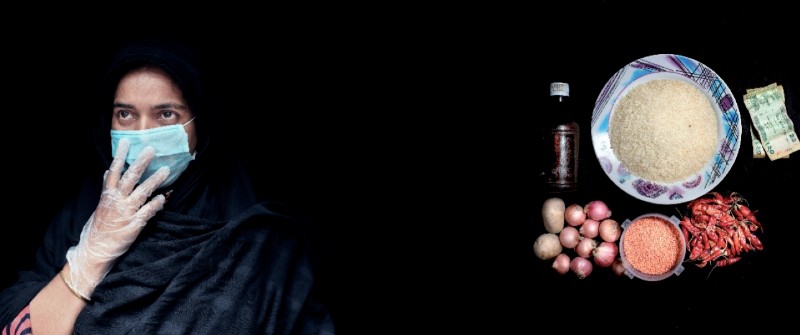
These accounts reflect the sentiments of many urban informal workers in Asian megacities which have recorded a high number of cases in their countries. In Dhaka and Manila, COVID-19 cases constitute 32% of the 52,445 nationally and 59% of the 18,997 in the Philippines. In Delhi there are 20,834 cases, 10% of the country’s rising numbers. As governments scramble for an effective approach to combat the pandemic, millions of urban poor like Lila and Shamima endure its impact with limited state assistance and unjust policy enforcement.
Inadequate state support
On 1 April, twenty-one residents of San Roque, an informal settlement in the northern part of Metro Manila which is home to 30,000 people, were jailed for voicing discontent and seeking aid to fight hunger. While the national government has distributed PhP8,000 (US$157/household) to the most impoverished families, urban poor groups have claimed this is insufficient to meet family needs for more than two months of enhanced community quarantine. Many households – around five million by government’s own estimate – have been excluded from the list of beneficiaries. In many areas, cash aid distribution has been marred by irregularities as some village-level officials have falsified the recipient list or asked for a ‘cut’ from the beneficiaries.
Dhaka’s urban poor have not received enough state assistance either, despite the government’s promise of a stimulus package of over $11bn to provide soft bank loans and to assist people. In addition, while the government is providing food assistance for 10.25m people, not all poor residents have received government assistance. In the Sattola informal settlement, one third of residents received food aid, but the resources were not distributed fairly. ‘Some poor people have received government relief packages, but the distributors have prioritised their relatives’ and followers’ needs,’ said local resident, Tania. Due to a lack of access to government relief packages, many urban poor had to rely on the NGOs to fill this void. However, local NGOs have only provided financial aid to the most vulnerable groups.
In Delhi, migrants protested about the lack of money and food due to the abruptness of lockdown, which left them no chance to prepare. Forced to stay in containment zones, they demanded transport to go back to their villages. Similar protests have been breaking out in different parts of the country. Amid international criticism, the government eventually announced relief measures for the poor and transport facilities for the migrants. However, experts have warned that the aid package for the poor is insufficient, as many undocumented urban poor people cannot access the funds. Similarly, travel arrangements have been fraught with inconsistencies. Opportunist agents have sprung up swindling the migrants for a ticket back home, and train journeys were also ill-managed. They lacked food for the trip and transportation from the arrival station to villages.
These incidents exposed the dire condition of daily-wage earners, who have been forced to stop working due to tough movement restrictions. The limited state assistance has forced some urban poor communities to rely on bayanihan (communal mutual-aid practice) and other self-help initiatives to arrest hunger. In San Roque (Manila), the community groups have set up community kitchens with the help of volunteer professionals and civic organisations. In Dhaka, the urban poor who did not receive state aid are either relying on small savings or awaiting assistance from their affluent neighbours. In Delhi, while the government has been feeding and sheltering 92.14% of the poor, these measures were reactionary rather than pre-emptive. Inevitably, many slipped through the gaps; but NGOs stepped in to support the poor through the distribution of food and advocacy.
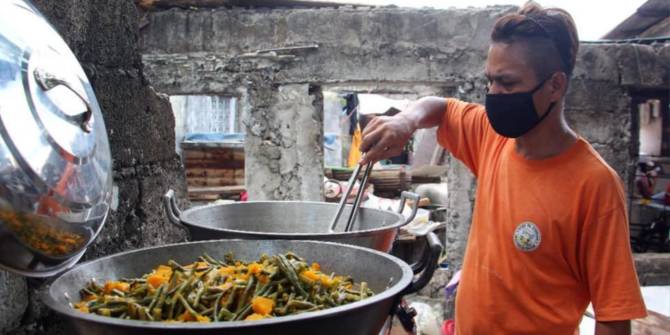
Urban exodus
With fears that COVID-19 would spread rapidly in poor, dense urban settlements, Philippine President Rodrigo Duterte issued an Executive Order reviving the ‘Balik Probinsya’ (Return to the Provinces) programme. This policy was intended to de-congest Metro Manila and drive balanced and inclusive urban and rural development. However, critics claim this rehashed scheme to dump the urban poor in the provinces is unlikely to succeed without significant development and job opportunities in rural areas.
In Bangladesh, while the government has not issued any ‘return to village’ policy, its declaration of a 10-day holiday beginning on 26 March forced many of the urban poor, including garment workers, to rush to their rural homes two days earlier. The government later banned travel on water, rail, and air routes and suspended road transportation. This situation forced many garment workers to walk hundreds of miles to return to Dhaka to save their jobs.
In India, the national lockdown left many urban poor at the mercy of their employers, most of whom had abandoned them. Exposed to hunger, some waited for three days while others lasted a week before they started their long journey home, defying lockdown rules. As one migrant, Jai, put it, “for the poor, the choice is between dying of hunger or exposure to coronavirus”. Choosing the latter, he travelled 1200 km on foot from Delhi to Bihar, as all modes of transport had been stopped. Thousands more walked for miles, rode on bicycles for days and climbed into cement mixers to return to their rural hometowns. Some even squeezed into cramped trucks – but many died before they could reach home.
As reports of the migrant exodus began circulating in the media, the government urged them to stay put and promised food and shelter, fearing they would spread the virus. But the assurance came very late; many migrants who had stayed put were forced to beg for survival. The pandemic has also taken a toll on the workers’ mental health.
Unjust enforcement of lockdown rules
The limited state assistance and forced urban exodus have been exacerbated by an inequitable and violent response to the crisis. In the Philippines, over 100,000 people have been arrested for violating curfew and quarantine restrictions since the lockdown was enforced. The United Nations has described the country’s approach as highly militarised, with reported human rights abuses. In some villages, local officials locked quarantine violators in dog cages and coffins.
This heavy-handed approach is in stark contrast to how the government has handled violations committed by some state officials. For instance, a Manila police general had a birthday gathering with other officers on 8 May despite a strict ban on mass assemblies. While the police officers are now are facing legal charges, they have never been arrested nor suspended from service.
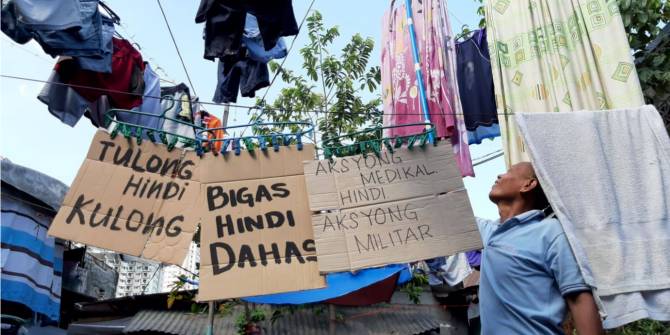
Although the government of Bangladesh has not taken a violent approach, the urban poor faced discrimination when the Dhaka Metropolitan Police allowed hotels and restaurants in the capital to sell iftar (a meal taken by Muslims at sundown to break the daily Ramadan fast) items on 27 April. They also allowed grocery shops to remain open until 4pm. However, they did not allow small eateries to set up stalls on the footpaths. This means the street food traders and other informal vendors are not allowed to operate any business in public spaces.
A similar story of unequal treatment was observed in India. Returning migrants were exposed to inhumane quarantine practices, both on their way home and once they reached their villages. Images of workers being sprayed with disinfectant have emerged from different parts of India. In some villages they were forced to quarantine on trees and in fields, far from the residential clusters.
Watch | Migrant workers and their families in Uttar Pradesh's Bareilly made to squat on roads, sprayed with disinfectant. #CoronavirusLockdown #CoronavirusOutbreak pic.twitter.com/zasJ69VzEO
— NDTV (@ndtv) March 30, 2020
The bias against the poor was evident since the middle class and rich returning by air were not subjected to this kind of discrimination, even though the virus had reached India by air passengers. In contrast, the poor were treated as if they were themselves the virus.
Unequal experiences of (urban) citizenship
These accounts reveal a fundamental issue in many Global South cities – the uneven experiences of urban citizenship. Inadequate state support, leading to a ‘voluntary’ exodus, and the ‘return to the provinces’ approach reveals how governments consider the urban poor as a burden, with little recognition of their contribution to the urban economy. The ‘stay-put’ strategy without offering provisions or giving any assurances shows how migrants are treated as dispensable.
Double standards prevail in the administration of justice in unequal cities. The poor and vulnerable are criminalised and punished, while those in power are treated with compassion. In India and Bangladesh, the sudden imposition of lockdown without warning or adequate assistance exposes how the poor are invisible to the state gaze.
While the struggle for urban citizenship is apparent, there are cases where local governments have been working hard to address the needs of the vulnerable. In Pasig, a city in Metro Manila, the local government has provided funds to families who were not covered by the national government’s cash assistance. Neighbouring Marikina is undertaking mass testing, which has included drivers of informal transport operating in the city during the quarantine period. In Dhaka, some local ward councillors are making serious efforts to arrange relief for the destitute and drawing up a list of the ultra-poor. The Delhi government is also making free rations available to poor people who lack official documents. These practices show how the meaningful realisation of urban citizenship has become contingent on the quality of leaders and (urban) governance in unequal cities.
It is important to end by emphasising how solidarity-based initiatives – e.g. community kitchens in San Roque and NGO assistance in Sattola and Delhi – create spaces of urban belonging, and enable the poor to cope with the onslaught of COVID-19. Yet they also reveal the enduring struggle of impoverished urban residents to realise the substantive meanings and practices of being a ‘citizen’ in the city. Urban policies in Delhi, Dhaka and Manila have been largely framed around ‘formal’ economic transactions and relations. Self-help practices and informal livelihoods are easily seen as illegal, treating the informal workers as stubborn law violators in times of crisis. COVID-19 reminds us how informal employment and deep-rooted inequality in these megacities mean the vulnerabilities and opportunities to recover from the pandemic are unevenly distributed.
Note
All names of the interviewees in this article are pseudonyms we used to protect their identity. We thank Ravish Alam, Parul Sharma and other participants for their inputs.
This post represents the views of the authors and not those of the COVID-19 blog, nor LSE.


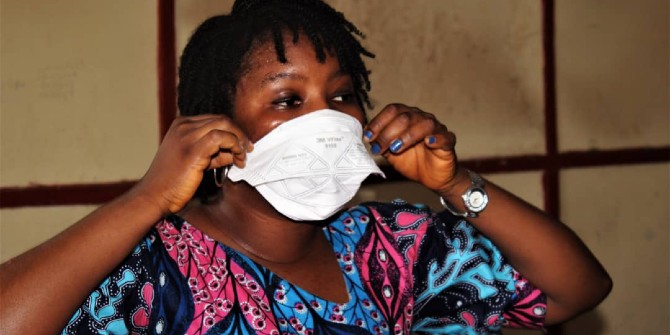
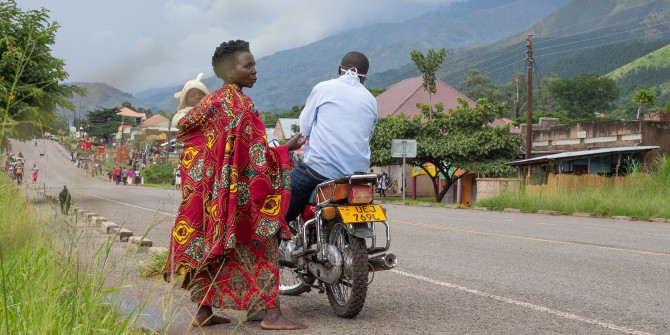
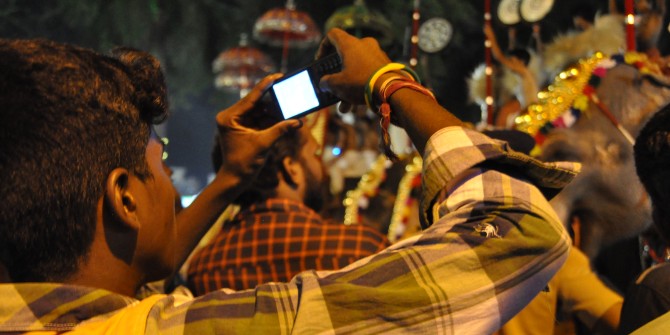
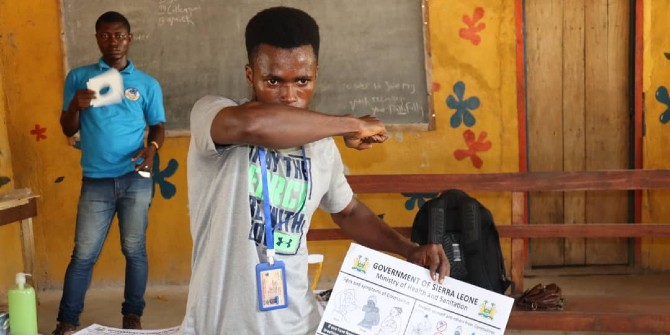
Dear Recio, Chatterjee, Lata and the bog management team,
Thank you for the paper. I am writing to know how would you comment on the use of mass confinement on the places burdened with great social disparity and with large group of poor people living in overcrowded and/or insanitary areas. Is there any historical cases that could provide any lessons for the countries and places hit by COVID-19 today?
Best wishes,
Georgia